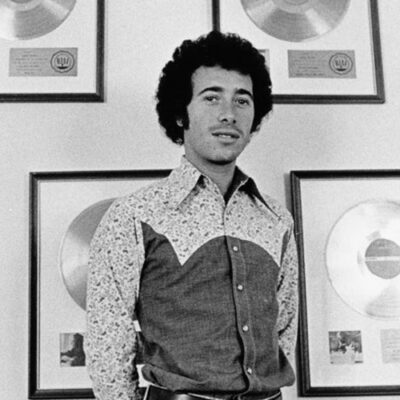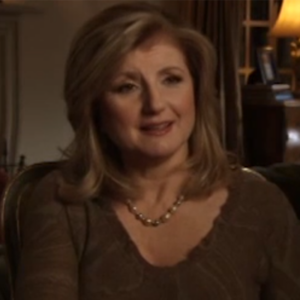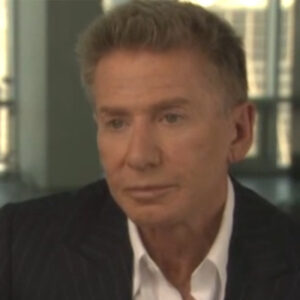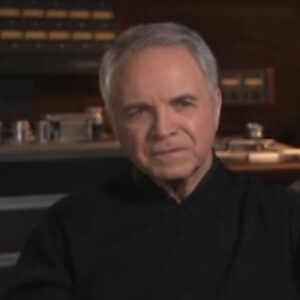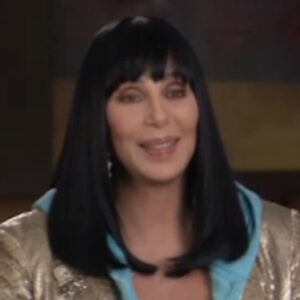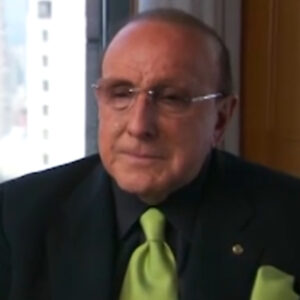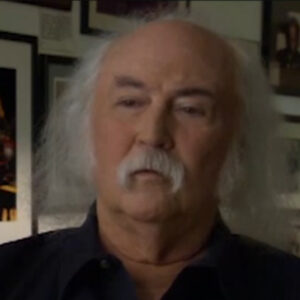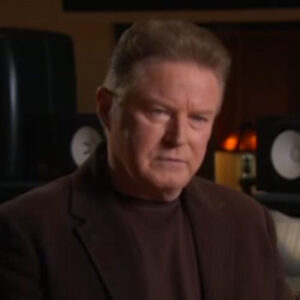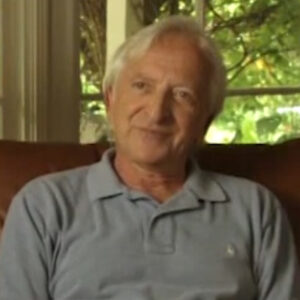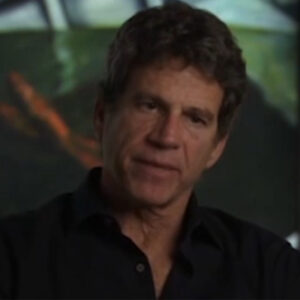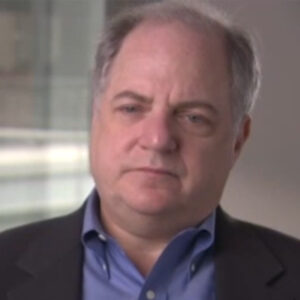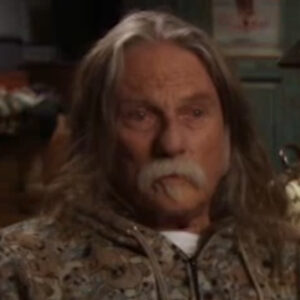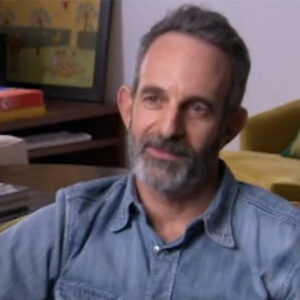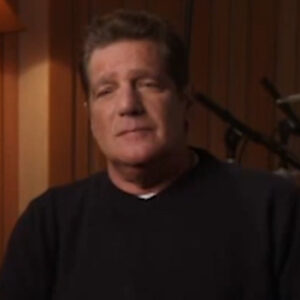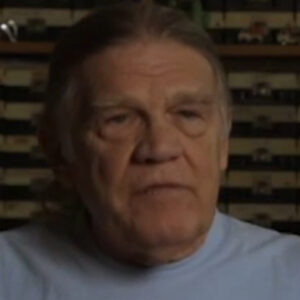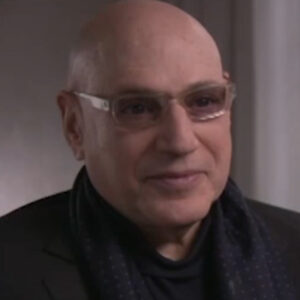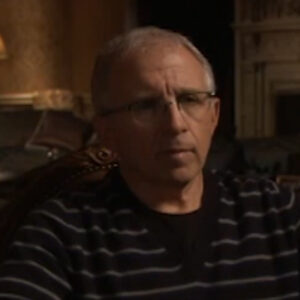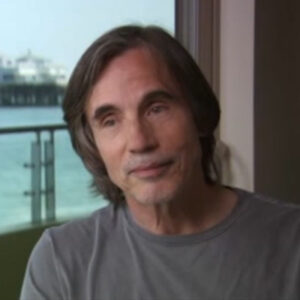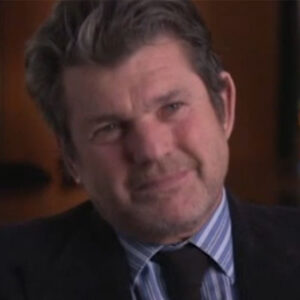Speaker I always assumed that David was incredibly impressed with him and his worldliness and that he became friends with them and travel with them and they got. Interesting. Sure, sure.
Speaker So, you know, I think he was a I think for sure he was an early mentor. Nobody’s as fast to study as David. So he had a he had eh eh, eh, eh, a great edifice on which to work the edifice of Ahmed.
Speaker But there are big differences. One thing that I’ve been curious about, and I don’t mean it in a negative way, but on it, despite the fact that he also made a lot of money, the artist was devoted to it. David has a pretty contentious relationship with a lot of the artists represented in the past. Why do you think that?
Speaker Well, I don’t really know. I mean, Armitt, no. Not that he didn’t have an enormous amount of talent. But but but Ahmed was a charm machine. You know, David is a brilliance machine. And and that’s a big difference. And therefore, I would think that that and also David has a shorthand with everything with it was longhand. Nobody has the focus that I’ve ever met that David has. And so I would think that that focus and and that absolute fierce purposefulness is not the same. It’s not the same brand. And therefore, it may not. It’s probably far more effective in a practical sense, but it may not it may not be as gloomy as the charm.
Speaker Now, did you see that, David, immediately when you met? Tell us about your first meeting.
Speaker Well, I met David when I was 19 and I was in the mailroom at William Morris. And. And this person showed up at I think it was Christmas. And I was just thinking, OK, when could I get out of here and go to the beach? Because I was kind of a Beverly Hills kid and whatever ambition I had and I certainly was probably not ambitious list, but I was not particularly driven. And in this mailroom with Christmas walks, this person and David. And he said he introduced himself and he said that he was from the New York office, William Morris, and that the New York office of William Morris. I guess I don’t know whether they closed on Christmas or whatever, but he decided to spend his Christmas holiday working in the L.A. office of William Morris. And I looked at this person and I thought, oh, my God, that’s something. Did you become friends right away? I don’t really recall enough. I think fairly. No, actually, I don’t think we did. I don’t think we did great. We knew each other a little bit then. But I. But. But but I’m not. I don’t know. The truth is, I don’t.
Speaker I don’t remember. Well, shortly after that Chip, I think he heard that one year out and he came back and his life changed pretty quickly.
Speaker Was it that quick? It was pretty quick, I think. But I don’t know if it was. I don’t know. I mean, he’s like, oh, no, no, no, no. He was still in the hole. Yeah. No.
Speaker So it couldn’t have been that quickly that I think it was on a ship when it became a major expense account. And obviously that Los Angeles business was there. And it’s one of his first trips. And they told me that. And he raced back to New York City and found her safe to talk to you about.
Speaker No. I remember. I mean, he might have, but I don’t I don’t you know, I’ve have I don’t remember anything much about Laura Nyro, except I liked her listening to her music. Then I knew David was tight.
Speaker I think that kind credible that he heard getting it wrong is wonderful.
Speaker But David has an extraordinary ear. I nose smell magnet, you know, magnetic compass of some kind that when he sees it, it’s not going to escape him.
Speaker You and me and he have been friends for ever. You talk every day.
Speaker Not every day. No, we no, I don’t think we talk every day. I don’t. You know, the only person I talk to every day is my wife.
Speaker He’s a big phone person.
Speaker He’s a big phone person. And I’m I used to be a big phone person. And now I’m so much less. I mean, that’s just the change of technology and all sorts of things. But I used to talk on the phone. I mean, I would grow or should have grown. If there was, I mean, any kind of organ transplant. But I. I actually don’t really like talking on the phone so much anymore. And it’s a hard thing.
Speaker But anyway, how much time you to get a sense of questions. I’m not sure.
Speaker How much time do you want. I me do with that a lot has a lot of questions. But I probably say at least that. We’ll go as long as you can. OK? Supposed to be someplace at 350. But. But I’ll I’ll I’ll try to go.
Speaker So tell me about your friendship, David. Me read something. Sure. This is a well, a Catholic quote when we talk with Warren.
Speaker He said, I want you to think that this, quote, only solitary men know the full joys of friendship. Others have their family, but to a solitary and an exile. His friends are everything. Mm hmm.
Speaker And this is for Warren. Yeah. But will a Catholic. Yeah. No, I mean, bye. Yeah. Warren is a key. Brought my attention to a great quote. It is great quote. And I’m hoping he will say it on camera. Well they say got his cap. We’ve got to go. You got it. You’ve got to get the lighting right first.
Speaker That’ll take you about three years.
Speaker That is not believe that day. That is not time for that. Then on that day before in my life, anyway, I saw me.
Speaker What, how, why, how that resonates for you and try to put it in a way that could mean my question isn’t going to be. Sure. That friendship. And David.
Speaker Well, I do think that probably friendship is more important to David has a different standard than it does probably for most people.
Speaker I think it’s filled with with with his particular the idea of friendship with David is is is much stronger, much fiercer than it is for most people, both in terms of of steadfastness, loyalty and also breaking.
Speaker I mean, you know, for as long as I’ve known David and it’s been a very long time, there are vast periods, I mean, in years where we didn’t even speak to each other.
Speaker And so they’re I think they do have a kind of standard of combustibility because they’re they’re very tightly packed.
Speaker And and and and so they have they can be volatile.
Speaker Well, I’ve learned a little bit about your friendship and your legendary feuds that haven’t been.
Speaker We didn’t have really legendary feuds. I think that that probably, you know, who knows what’s cooked into where it goes awry and hurt feelings or misunderstandings or or God knows what sends the thing flying. And, of course, usually you can never figure out why, although the one thing that’s that that that is probably certain with I think almost all of these relationships is. Somehow after a period, they find their way back together. You know, I’m at each time that David nice, so to speak. We didn’t like break off, but it was not a silent break. And you’d think at that moment. Well, this is this is finito. This can never happen again.
Speaker And yet we’re we’re we’re brothers.
Speaker That’s what I was looking for. Thank you.
Speaker Well, I’m so glad I well, that. I mean, that’s what I think. I read friendly with said, you know, they’re very odd, David. They’re really they’re brothers. You know, I’m like a fan. Aren’t too far away. Are you doing Fran? No, I don’t think so. But I don’t know. David didn’t seem to feel that she would have a lot to offer either. She.
Speaker What do you. She’s always funny. Carrie. Kerry’s humor is good for your purposes, for sure.
Speaker Anyway, David, David is funny. Oh, David. Tell me what.
Speaker What do you most admire? The quality.
Speaker It’s it’s such a full deck. I mean, David is as full a deck of a person as it’s it’s got. It’s got lots of suits and colors. And so it’s you know, it’s hard.
Speaker I think among the most extraordinary I mean, really special qualities of David all is his it’s his fierceness for friend or foe. But his focus and fierceness and a brain that is so capacious. I mean, just such a big thing, that brain of his. But, you know, a lot of people have large brains. But his unique brain is that it can focus and solve a problem better than I think anyone I’ve ever known. That’s a big statement since I’ve known just through the passage of time and circumstance of my own life. I’ve probably known a lot of folk who have who are accomplished.
Speaker Can you think of some specific examples of stories and tales?
Speaker I don’t know. Oh, no, no, no, no, no, no, no, no, no. You know, that’s the thing. Anecdote. If I fall on it, I’ll give it to you. But it won’t come.
Speaker It won’t come from free association, I’m afraid. But what else could I do about the uniqueness of David?
Speaker Well, the other thing is, you know, the one thing that my wife said a wonderful thing about David Deong first number.
Speaker That, you know, when you’re in real trouble or you have something really wrong, he’s the person you want, because instead of doing what most people will do, which is to pacify, you were to try and take this, so to speak, you know, that easy stroking way out. He will dead on. Tell you what to do.
Speaker He will be there with rather than palliative. He’ll be there with the real stuff.
Speaker Most people don’t know that. That’s often not necessarily appreciated. But Dionne once said to me, she said, you know, all you do is try and make me feel good. You know, when you’re sick, if you have something that happens to you, you really want somebody to figure it out for you.
Speaker Find the best doctor.
Speaker Just just cut to the you know, that. I mean, I always kid David and I say that, you know, the thing is, if you walk in the room, he will go. What’s that on your face? No, not. No, no. Hello? No. No, nothing. Just fix that.
Speaker How do you think that’s affected his career?
Speaker Well, it is his career that didn’t work as well in the movie business is a different you know, it’s a different animal than the other businesses David was and.
Speaker And the principal difference with the movie business is that from his. My observation is the movie business that he entered was a corporatist world.
Speaker It was not it was not a world where you could act on your own with your own energy, with your own, whatever it was. It was corporatist. David has never been able to function in a corporate environment. You know, I said it it it said I say it very respectfully. I mean, I function pretty well in a corporate environment and others. I worked in corporations until I was forty nine.
Speaker David never really did. And he’s a he’s a lone operator and he’s faster than any.
Speaker He has no patience and he has no he has no sense of of of the. He has no sense of how to be able to waste the time that is wasted so to speak. Corporate life. Because David as I say, cuts No. One cuts to the chase faster than the movie business does not have that kind of rhythm. And if David simply were and then I think there’s a later example of this with DreamWorks, if David were simply engaged in the making of movies, he would succeed at that as he succeeded as everything else. But he was in a he was an executive in a company. And David is the antithesis of an executive.
Speaker What did you know him well? I mean, you met him at 19, so you did. Were you in a lot of contact when he was setting up asylum? No, not really.
Speaker I think those were I think those were some of our out years. Guy I we lost a I think once he really got in the music business and I was at ABC actually at that time and then the amazing thing and whatever and and I think that was the period. And then we came back together shortly after I went to Paramount.
Speaker So the period post 74. But from 60.
Speaker Five, six, seven to seventy four, which were those years? I think he was really juicing the music business.
Speaker But I think your success in the movie business, watching you. I mean, I think that’s what propelled him to want to go into. That’s the place to be.
Speaker Well, it was a place. Yeah. I mean, it was not a bad place to be, certainly in the 70s. It was a fantastic place to be because it was a great time for making movies.
Speaker It had been sort of fallow.
Speaker And then it just yeah, it was a great time. When you were young, you did to God.
Speaker Did you talk about your dreams and aspirations? Did you share that? I know it’s hard to put yourself back there, but could you try? Did you. Did you guys sit around and talk about what you want to do or whatever smell like?
Speaker You know.
Speaker I don’t think that. For a whole lot of reasons. I don’t think that was our way. I don’t think that was David’s way. I don’t think it was. Let’s sort of speak. Dream on. I think David was so clear eyed from such an early period that whatever the main chance was going to be, he’d find it faster than anyone else.
Speaker I mean, he decided. And I think it was a decision to go into the music business. You know, if you’re William Morris, you could go into any of the disciplines of entertainment. And he decided the music business because he had a perfect sense of what the opportunity was and what the opportunity was for an individual, for a person, rather than for an entity because they’ve never cared about entity. David has cared, though. No one travels later. He cared about what the purposefulness was that he was after. And he because of that incredible brain of his and an ability really to see aperture angles. You know, he he he went into that business and once he was in it.
Speaker That was just complete focus, so I don’t think there was a lot of jive. There wasn’t a lot of talk.
Speaker Well, that’s interesting. That’s very interesting. I was plainly in all of the. Credible self-confidence that this young man had with coming from nowhere, not having gone to college. He had absolutely no doubt that he was going to succeed in this world, which had come from.
Speaker Oh, I don’t know, probably in David’s case. I think a great deal of it comes from his mother. I suspect. And again, I’m no armchair in us here. But but I do think because I think she the one thing I do know and I’m sure you, you know, we’re will know is his mother called him King David.
Speaker I mean, his mother infused him with the idea that he could he he he could shoot anywhere he wanted.
Speaker And now it comes also, by the way, I think it’s a wonderful combination in a way of confidence, of his ability, of his brain ability and all of that and absolute insecurity. And and and those are that combination when right is an unbelievable propellent.
Speaker It also makes him very endearing.
Speaker Yeah, sure. Of course. Well, otherwise, it would be frightening.
Speaker You say that I just did not say that. What did I do? What is it that makes you an idiot?
Speaker Oh, can I use that word out of my mouth? I’m not so sure.
Speaker I mean, it’s the duality is what makes him human.
Speaker Well, if you have those you know, those elements. And, yes, the raw human ness of David is very endearing.
Speaker He’s become very endearing to me. And. When I first started this film, I didn’t know, you know. I mean, you read about David and I know it’s very positive, you know. I mean, a lot of it is not positive. He’s been characterized as ruthless and, you know, do anything.
Speaker He was. Do you think any of that was true?
Speaker Certainly not the witness for that.
Speaker Because I don’t see it. And certainly when I hear it from people. You know, just in books, I guess that was a pretty bad book.
Speaker But.
Speaker Well, Mike Nichols did talk a little bit, he didn’t talk specifically, but he did say that he thought the operative word was transposons this transformation really that that there was before David.
Speaker And there was an affidavit. I mean, after, you know, that somebody who had come to terms with a lot of things and changed things, he changed. Do you think David changed to something you think is cancer scare? Had something to do with that?
Speaker Mm hmm.
Speaker I don’t think people changed very much. I mean, so I. I’m not so sure that I could. Could I say that David has changed? I think David is. Maybe I’m just being dicey with words. I think David has definitely evolved into a far fuller person than he started out. But is that, so to speak, basic change? I’m not so sure it’s a transformation.
Speaker I don’t know.
Speaker He’s worked a lot on it.
Speaker Yes. Yes. Therapy. Sure.
Speaker All these various things that he was engaged in searching the soul searcher, you think? Do you have any idea what he might have been searching for? Besides a better understanding of himself.
Speaker I don’t know. You know, I’m not so sure it was. I think like everything or like many things with David. I don’t think it was an existentialist search for something. I think it was like David is extraordinarily practical. He wanted to fix what he felt was broken. And and he did. He did a yeoman like job.
Speaker I mean, he did really good work, very dedicated. I haven’t said that to me yet that I read I read a quote where he said, if you can improve it, if you can improve your life by one percent by doing this stuff.
Speaker I mean, that really is a very practical approach. Oh, yeah. Yeah. Yeah.
Speaker Did you know? I mean, you obviously spent a lot of time with David during his time. But how did that time when he was.
Speaker Thought that he had cancer, changed his life, live TV or was teaching. And I think probably also living out his contract. He was also having a lot of fun. Did you think up together?
Speaker This is, what, late 70s? Yes. Well, those were the Studio 54. I’m afraid those were the story of I shouldn’t say I’m afraid. I’m thrilled that they were the Studio 54 days. And I’m thrilled that we all survived because we actually all I mean, certainly we lost a lot of friends and things like that, but we all did. A core group, so to speak, did survive. And and since it was the last clearly great free time. It was an extraordinary period. I mean, to live through it. And looking back on it, just because you because of what has happened since that that really it was only a few years. It was only two or three years, but it was a very golden two or three years.
Speaker If you were young and if you were successful, you were you were you were moving quickly.
Speaker And it was for David.
Speaker I think at a time where, again, it was it wasn’t that you it it wasn’t that you knew he said. Right. It wasn’t that you knew that you didn’t have to pay a price. It’s that you just felt safe.
Speaker And it was it was a remarkable period, that period. And I know I’m not just talking I’m not talking about drug excesses or things like that. I’m just talking about just freedom, a real, real first flush of freedom. And I think for David, I think that was liberating and and all of the things that.
Speaker It would be.
Speaker He was also not working, doing so was how was he is a person you’re not working. Didn’t make you crazy?
Speaker No, I don’t think David. David’s again, part of. The originality of David is I don’t think this is not somebody who wakes up in the morning and gets nervous because he’s not working. This is not somebody who simply repeats himself and goes on, you know, just one dumb foot in front of the other because the foot can’t stop. David is perfectly happy to be still.
Speaker I mean, another perfectly a perfectly happy. But in other words, there is no stir in him. There’s no normal stir in him, like, oh, my God, I’m not working. The truth is, David hasn’t worked in that in that concept of working anywhere near where other people were.
Speaker David is a problem solver and a and it’s not like I think he has a specific goal, but whatever is in front of him that he wants to do, that interests him that he’s curious about or whatever, he focuses on it completely. And during that period, he’s maniacally the inclusion of almost anything else focused on that. And when it’s finished, it’s gone. Meaning, in other words, is no, it’s not like he likes process. So and most people, I think most boring, dull humans, me like process. And I, I think process to David is anathema. What he wants to do is get from where he is going in the shortest, cleanest, simplest, most efficient. And best distance. And so when that’s not on the table, he’s perfectly fine, meaning doesn’t have to do anything.
Speaker It’s actually fascinating.
Speaker I’m trying to give you all I’m here to do a time.
Speaker Did you talk to David before this interview? No. Because I think he’s perfectly.
Speaker He’s very he’s very trusting, which is I say I sent him an e-mail. He sent me an e-mail last night about something. And I said, look, I hope I just for other reasons, because I was complaining about something.
Speaker I said, I will try to enforce a good mood and good humor for this interview I’m doing today for you. What are you doing? So no other.
Speaker I haven’t talked to you. Feel comfortable talking about David’s relationship with Steve Ross.
Speaker Mm hmm. How much do I really know about that?
Speaker You could ask me a specific question. I’m certainly happy to talk about to the extent I know anything about it.
Speaker You know, I mean, Steve was adopted, David. It’s incredibly important to David’s career.
Speaker Oh, yes, sure. And then towards the end of his life, a little bit of falling out. I’m not quite sure what I was about.
Speaker Well, I don’t know. I actually don’t know. I mean, I know that. I know they were very close and I know. But I do remember David saying controversial things about that relationship. And and and I do remember it turned sour, but I don’t know why.
Speaker I think part of it is the calling of Steve and tell him that the merger dance. I think he felt. Hard to imagine that that would have been the sole reason for his lifetime relationship where Steve Ross is so generous and defended him against lots of other people. Didn’t it have something to do with stock options? Could that have been it with the with the merger?
Speaker You should ask that. I mean, if you ask David, I mean. No, no, I don’t. I just wondered vaguely. Stock options.
Speaker No, certainly no, Steve.
Speaker So when he sold Geffen Records to MCI in 1990 and then it was bought by Matsue macho stuff.
Speaker Yeah. He got tremendously.
Speaker When they got rich, they got real. He’s always been rich, but he got real rich.
Speaker Was it do you think that getting rich was his goal?
Speaker Well, I think certainly original wealth was. But he had originally original wealth. He had starting wealth very young.
Speaker And I think it’s you say I mean, as you say, people in these situations is the first 10 million.
Speaker You say, oh, God, that’s all I’ve ever wanted. And then it’s the first hundred. And then it’s the first billion or whatever it is. There’s no rationality there. None of that makes any sense. I mean, I. I’ve always. Forget what I’ve I. I don’t.
Speaker It makes no sense. The pursuit of money passed, the point obviously is somewhat insane. I mean, insane, meaning it is.
Speaker So giant, Gianetti, purposeless, unless you say I want to do this and that with it. I mean, if you have if you have it, unless you have some absolute purpose for it, that obviously has to transcend, you know, because if you’re pretty wealthy. And you have family you can pretty much take care of multi generations must they’re really crazy. So are you. Could you.
Speaker Well, you know, when.
Speaker Look, when three people really people with with real accomplishments in different areas behind them say they’re going to create a new motion picture studio, that’s a big deal. And then create it and create it rather than rubbing two sticks together with a huge amount of backing, financing that only they could obtain.
Speaker And that was a real effort. And so everybody, of course, said, wow, this is. This is this is not let’s. Wanted to be United Artists that bore everybody with a.
Speaker Journalist Washington wasn’t I mean. Well, they were actors, but different different hold time and deal.
Speaker But.
Speaker But I actually think that probably that the individual created entity, which was a artist created by a bunch of stars in this case.
Speaker This was a bunch of other kind of talent creating a entity that probably will last. I mean, I suspect DreamWorks is going to transcend is a chance to transcend its founders, as United Artists did up until unfortunately crashed. But it way transcended anyway.
Speaker There were look, they set their own expectations, and that was part of, I think, their early trouble, which is they set these expectations by saying we’re gonna create a new motion picture studio. So everybody said, OK, let’s see. And so the early pressure on them to show it was was was heavy, heavy pressure. And then they pulled it off in a fishbowl for a while. Well, you take this these three, you know, open their mouths and people are going to want to know what’s going on.
Speaker Did you know that David’s favorite book when he was young growing up was the biography?
Speaker Yes. I don’t know. I don’t know that he said it was his favorite book.
Speaker But I absolutely remember it was Bosley Crowther, wasn’t it? Yeah. What’s the name of it?
Speaker The autobiography Leaving Me. No, no, no, no, no, no, no. Oh, it had an interest in it. It had a really interesting title, which I’ll pull from someplace. Yeah. Yeah. I’ll come back to that. David met Jeffrey Katzenberg. Probably. He was your assistant. Yes, he was little Jeff. I’m not allowed to say little Jeffrey, so please don’t give you could say that Jeffrey was my system. Yes, yes, yes, yes, yes.
Speaker Jeffrey started Jeffrey Katzenberg started in life and life as my assistant. And I’m sure I introduced him today at one point or he met David through my life, something I think he actually actually met him when you were coming back from a trip.
Speaker And Jeffrey met you at Customs. You guys didn’t want to spend a lot of time on customs.
Speaker And then Jeffrey got us through cut through the whole thing. And David was like, wow, this guy’s got places. That’s the story.
Speaker I was very clear that Jeffrey was going to go places and it was very clear that Jeffrey and David would get along and talk about a little bit about what you said earlier.
Speaker David’s charitable work. I said that earlier. No, but you said if you.
Speaker What’s the point? Oh, he’s done amazing things with his money.
Speaker Oh, yeah. Yeah. You could talk a little bit about that. You don’t have to if you don’t want him. Well, let’s see. What. What could I do about that?
Speaker What was he involved initially with with Hollywood supports that you in such put together?
Speaker No, he wasn’t kind of that was a great thing. That was really interesting what we did. He was involved with Hollywood sports. He was involved with APL for sure, but not Hollywood sports.
Speaker Were you there, by the way, the night that he got the award and publicly came out?
Speaker Where was that? Was that it? Yes, of course I was there. I must have been there. Sure, I was there. It was an AP, L.A. it was the night.
Speaker Was it in New York? Was it warm? Baby introduced him.
Speaker Why do I think it was new? Remember, Streisand was also getting a lifetime award.
Speaker Now, I know I introduced Barbara.
Speaker But I thought.
Speaker You know something? I don’t remember. I thought it was in New York.
Speaker Did you know he was going to come out that night?
Speaker No, I. Did he read that to me before and.
Speaker I think I must have known. But I can’t remember any detail because I wasn’t surprised.
Speaker I mean, I wasn’t surprised, but I mean, I wasn’t at the act of it at that at the at the statement of it. And how.
Speaker How significant that was, so how do you think that that sort of doing that, even though David was I don’t think ever somebody denied being gay, but this was a public statement. And there’s some there’s some difference.
Speaker There’s a big difference in that.
Speaker Anything that you can live, you know, you can live whatever, whatever level of privacy that you want or lack of privacy. But there is something between that and actual first person declaration. And I mean, it’s it’s a bit ridiculous that there is even such a thing. But nevertheless, in in terms of politics, of course there is. And there was. And so I think that was a probably a significant freeing, although David certainly didn’t lead a life of subterfuge.
Speaker So I think it was symbolic. But I think a big I. It was symbolic for David, certainly. But I think it was a big symbol.
Speaker Warren said two things that night that were very interesting that keep sticking in my head. One is you said that you described David as a captain of industry with the soul of an artist. You know, that’s nice. Do you think David has the soul of an artist? No. Darn.
Speaker Sorry, I couldn’t I what I mean. I’ll do everything I can, but that would just be not right.
Speaker The reason I ask this give and question is that we are a series that we make, films that are.
Speaker He has the soul of an artist.
Speaker No, no. But if you could talk about how he has affected what we know now, I’ll tell you when you say cultural legacy.
Speaker His legacy is a level of of originality, of creative originality that is in so many different areas and so many different facets of it, that that I think he actually is an important figure for for this period. Again, he’s unique. There’s there really isn’t there? There isn’t anybody who’s had the kind of career that he’s had. That crosses so many parts of arts and entertainment into. It’s just that that’s really quite remarkable to have to to have done the theater, to have done records, to have then participated in movies, to, you know, to to all of the things that David has done or are to have carved out an absolutely original collection of art, as only he would do.
Speaker Warren also said that night that immobilized David Geffen is somebody you weren’t working for you, not against you.
Speaker Well, I don’t know if I said it earlier when you said, what are the what are the qualities of David that are unique?
Speaker The advocacy, both positive and negative, is really remarkable. I mean, on a negative, one of the great values that I have personally with David is his being devil’s advocate. You know, you can never say anything to David that he doesn’t usually have a contrary opinion. And it’s usually original and it’s usually well thought or certainly interesting thought.
Speaker And he’s the world’s one of the world’s great devil’s advocates. And if that’s not your mind and that’s not mine, my mind is not. I don’t. I can I actually can never even see downside. Just not my nature. So to have somebody who can market off in every quadrant with his with the perfection of his brain is is an extraordinary gift. That’s on the you know, it’s on the devil’s advocacy side.
Speaker But on the pure advocacy side, if he’s promoting you, meaning if he’s if he’s at your back pushing, I mean, if he’s blowing wind at your back. Nobody’s better because he’s a spectacular salesman, you know, not as a not as a slick haired fast talker. But he’s a fantastic salesman because he has an ability to put into language every good argument because he’s so smartly focused. So his advocacy is more effective than most people’s cheerleading.
Speaker Beautiful statement. But he has good creative instincts. Yes, great creative instincts. I mean, that certainly may not have the soul of an artist that he had a good Midas touch. I mean, he has good painting. Absolutely. As good creative. Risky business, I think is a good example of that.
Speaker He argued for the director resistent story. Yeah. And he was.
Speaker Besides personal best. Were you ever involved in any way with him? That was one of our breakdowns.
Speaker What else we involved in in the movie business besides personal best?
Speaker Did we ever do anything on anything other than that? I think that was enough.
Speaker What’s it what’s your take on what happened in that story?
Speaker Oh, God.
Speaker Well, the best you could say is, is it was a series of misunderstandings and it was just it was it it it was it actually it was a. I mean, the specific of it is so complex that I promise you, you don’t want to know. And I could never tell it to you unless you at 16 hours now at the end of it.
Speaker Which broke the. The end of personal best, which. Let me see if I can do this right. This is great, actually. Well, the Danu Mile personal best. And David and I hadn’t spoken.
Speaker For a year or some long period after it all blew up.
Speaker But then through a whole series of circumstances.
Speaker We it came around again, and it was all the arrangement that David and I made was subject. To our screening, the film. And so Michael Eisner and I. Michael was the president of Paramount at the time, screened the film at my house with David and Bobtown, who was the director.
Speaker And, you know, all I wanted to do was say, yes, it was so it was become such a thing. And I just we finally made this rapprochement deal. I wanted to say yes. ET cetera, et cetera. And I. And and the film was over. And Michael and I go into another room and we looked at each other, says, we hate this movie. What the hell are we going to do? And for literally about two hours, I would keep going back downstairs to the projection room and say to David and Bobtown, who were waiting anxiously for our answer, that we’re still talking. I’m sorry, we have to talk. We went back. I would go back and talk hours with Michael and I. The truth is, neither of us could just face whatever. Finally, Michael, we agreed we’re not going to do the movie. And of course, Michael was not going to go tell him. He simply went out another door and left. So I went down to tell him at that point, Bobtown, who had drunk a lot, passed out.
Speaker And I said to David, look, I went through all the pipe. We can’t do the movie. I’m really sorry. I hope this doesn’t break us all apart again. I said I couldn’t care less at this point.
Speaker And walked out of my house and there I was left with Bobtown, passed out. Not being able to rouse him.
Speaker And him not knowing that we weren’t going to do his movie. And David, who literally once it was clear we weren’t going to do it. He didn’t care anymore. It was like the whole thing was over. We were friends again. And he didn’t care. But I unfortunately had to deal with Bobtown. But that’s a story about me and not David Geffen. In the end, I. I could not rouse Bobtown.
Speaker And so I actually never told him because I went to sleep. And when I got up in the morning, he was gone. What happened between.
Speaker I mean, I know anyway. I wish I could I wish I could do it better. But that’s not. It made me laugh.
Speaker Yeah, well, you can use it if you want to do it again. No, I don’t want to do it again.
Speaker But what happened between Bob and Bob? Camp David?
Speaker Oh, the whole thing’s just a train wreck. I mean, it it was just I mean, I. Bob Town’s great talent and all my life. And he really is a great talent. This was one that just.
Speaker Didn’t work or a lot of people liked the film. So but leave that there. It was. It was just a whore. I mean. I mean, for David and Bobtown.
Speaker It it. It was just cross purposes. So.
Speaker D.A. talks told us in the interview David never makes the same mistake twice.
Speaker How do you think that experience with doing personal best affected the way he thought about working with talent in the movie business and how and how he was going to behave in the movie business? How did it affect him?
Speaker After personal best.
Speaker David, do anything until DreamWorks.
Speaker What is your business? It was after Empire was after that. That was his first one. Those personal businesses first. What’s it really matter? And it was such a rotten experience for him. That’s what I’m trying to get at. How did he. What did you do for interview with the Vampire?
Speaker Well, he peop optioned the book. He found Tom Cruise and Rice didn’t want Tom Cruise, that it was the worst mistake ever.
Speaker This is while he was at Warners.
Speaker Now, this is when they began dating, when Steven C. Ross gave him his own.
Speaker All right. Right. I forgot all about that.
Speaker And it turned out it was you know, he was right. Tom Cruise was excellent in television. And Rice ended up taking a full page ad apologizing today because she’s very vocal about it. You know, she gets a bad idea. But yes, you’re right.
Speaker Anyway, so, so personal best was a big deal because it was his first movie. And he didn’t get on with town. Town was listening to him, I think town town was careful with cocaine, whatever, and, you know, things were going way over budget and David couldn’t control it. And. Bobtown probably didn’t treat him very well.
Speaker Oh, I think. I think they just had it. It was just as I say, I think it was one of those not predestined, but but it was a train wreck. I think from the almost first hour of the first day until truly last hour of the day when that night of that screening, when we turned it finally down. And David just then, David, I think that ended the whole thing for him. I don’t think he had another thing to do with it from there on, because in the end it was.
Speaker He got out of the. By petitioning Steve Ross, Steve Ross bailed him out a lot.
Speaker Well, it’s always nice to have somebody like Steve Ross who’s who’s backing you.
Speaker Try to imagine what it must have felt like for him. You know, he won being in the big business. He loved going out this way.
Speaker Finally, he was there. He has always been very disappointing.
Speaker You know, I don’t know. See, the thing is, again, we really did have a tremendous fight.
Speaker The only way you could describe it over personal best. That kind of surprised us both because, I mean, it was kind of an elective and it was circumstantial.
Speaker It was supposed to be a Warner film. It got into this union trouble. I got involved in it at that point. We had this huge blow up over it. And then at the end, we needed it back together. So my things with him on personal best were very personal to me. And I hadn’t a clue what was going on in his head.
Speaker So I don’t know. Dana, is it incredibly complex guy? Well, I think it kind of probably addressed that. But what do you think? People are so fascinated.
Speaker Because they are you’re here to tell me? Well, I hope so for your sake.
Speaker They really are. They can’t believe he’s allowing that.
Speaker Yeah, well, because he’s look, he’s a fool. He’s a full bodied person. I mean, there’s a lot there’s obviously a lot there. There’s a lot there.
Speaker There’s also there’s also a bit of mystery about David and and a bit of mystique. And and, of course, there’s there’s a whole now there’s a whole life and meaning. He’s been at it a while.
Speaker He’s got 40 years or so, 40 plus years of living close to activity that people care about.
Speaker And of course, he’s got a really interesting mind. I mean, he’s gonna be he’s got I mean, you can’t go on long enough. Meaning. I mean, you can go endlessly, but how long you go. Let’s talk about that that actual that brain of his it and and it’s not a math brain. It’s not a it’s not an intellectual brain as such. I mean, it’s it it it but it but it is such a powerful brain in its in its subtlety, in its purposefulness and its productivity, in its, in its emotionality. It’s an enormously emotional character. And that, that the other thing is about that is, is that in a way what’s also really true about David is he’s a very good citizen. And I mean that not in terms of patriotism as such. But he’s a really good citizen. Yes. And and what often happens with at least my observation, what do I know? But whatever is, is that if you have great success in any particular area, it’s fair and fairly corrosive to citizenship and responsibility. And David shines very brightly in terms of just just just a citizen sense of responsibility. A sense of wants very much. Wants very much. That’s that. That’s that that’s that sounds like it’s part of ambition. It is. And it’s pure. It’s a it’s a it’s another thing that I think makes him interesting that, you know, he’s got that kind of well.
Speaker And there’s a part of I mean, I’m just guessing here that he said to himself, I can be I’m a force because I have a lot of money and I should be a force for. And I’m going to do that. So that’s where I think The New York Times thing came from. Just pure belief.
Speaker What are your times? Oh, Hillary.
Speaker No, no. The New York Times trying to buy the Pristina, the. Some kind of an interest in The New York Times that turned it into a nonprofit institution that was had a month ago. You wrote about that? Yeah. You know. Why not do it?
Speaker But it seemed to me that it was coming out of something very pure. We have to have a free press in America. And I might be able to do something to help that.
Speaker So I’m there to try to do that. But you don’t. But what about Hillary? You ran for that whole thing that Hillary Obama. Was I around? I mean, did he talk to you?
Speaker Oh, yeah, yeah, yeah, yeah. And I mean.
Speaker You know, it’s not that no one else said that. Or thought it. But no one else said it as effectively as he did, which is, again, this example of his ability to conceptualize and to an end to be an advocate. Plenty of people. Have for harsher opinions of Hillary Clinton. Clinton’s etc or whatever. But but his expressing it at that exact moment in that exact way that he did was was was powerful. It was powerful advocacy.
Speaker Do you think that it turned the tide? No, no, I don’t think so. I think what it did. No.
Speaker What I think it was is, is it was simply.
Speaker Wow. What would I say about this?
Speaker I think it was the first effective slam. Against Hillary Clinton, I also thought, by the way, was very unfair, but it was the first real. It was the first effective slam. So it opened a gate, so to speak. Did it really open the gate? I don’t know. It was the first effective slam. But it didn’t turn. I mean, Hollywood. Look, what turned Hollywood was one thing.
Speaker He won the primaries. Believe me, Hollywood has no.
Speaker Particular ideological within the range of the on the left, I mean, left to right for sure. But believe me, if Hillary Clinton had won the primaries. The truth is at the end, retail, forget all the talkers and all the noise at retail. Barack Obama wiped her off the dial. And so Pat turned Hollywood.
Speaker They did raise a lot of money for a couple of years.
Speaker No, no. I mean I mean, he he his he is, so to speak, contribution to Obama, I think was to be the first effective slam. But the incredible thing about Obama is the amount of money that he raised from so many different pockets.
Speaker Was just enormous. And actually the money that came out of Hollywood for Barack Obama was the smallest of the buckets.
Speaker That’s interesting. Thank you. He’s our president. Yes. To say the least.
Speaker He must be finished with me. Oh, no. Oh, well, we’re out of time. I have another 10 minutes, so. OK. You introduced Merle and David.
Speaker I did rather stay in your house. When she came back to L.A., she did have a house anymore. She stayed with you. Well, she did. And they came over. Did you have screenings all the time, whatever?
Speaker Well, yeah, probably. I mean, I don’t know. I didn’t know this. Did I introduce them? I think so. It’s very possible at your house, which is more than possible.
Speaker But we interviewed her the other day. She was absolute charm. Oh, for sure. Were you surprised when they got together? Somewhat, yeah. Did you eat a lot of time with them?
Speaker Oh yeah. Sure, sure. Tell us.
Speaker Short stage for us. We’re trying to do what you want. Yeah. Yeah. What would I do about that.
Speaker What would I do about that? What would I do about it?
Speaker Well, why was he so taken with her?
Speaker I think really they were really intrigued with each other. I think each of them had never met that kind of particular other in their life.
Speaker And so I think it was it it it was very potent and and and very alive and and and it was a very real relationship. But I do think it’s probably that night or they just they had never been in each other’s orbit. I mean, as as, let’s say, characters in life.
Speaker Were you around doing the shared events? That’s all right. That’s OK. Evander and Cher days.
Speaker I think that was during our period of one of our periods of not talking, because I don’t really think that I was much around for share.
Speaker I think I was there at the very end of share maybe or something. It was deep. Deep. Oh, yeah, I was. Well, it’s terrible. I mean, all of us have been through some big emotional mass rejection. And and this exacerbated because it was public. That’s always an added lovely added attraction to just garden variety hurt. So I don’t know, you know, the Genesis or anything really about the. David, my story, except I only know that one day it was very clear that they were having an awful time with each other, and one day I got a phone call from Mike Ovitz saying, I’m on my way to lunch with David. And, you know, he continues to say these terrible things about me. And it’s really hurting my family. And my children are really upset because they’re getting all this stuff back.
Speaker What should I do? I said you should tell him that if he does it anymore, you’ll beat him up. And Mike, us, really? And I said, yes, of course. I mean, if somebody says something terrible about you, tell him, do it again and I’ll punch you. So, of course, Mike Ovitz does this at this lunch and David essentially moves across the table and says, you ever come near me? I will have you arrested. You’ll be in jail for the rest of your life. I mean, in other words, just hopefully blows it away. And later that day, he calls me up, David, and he says, Could you believe what Mike Ovitz said to me? And I said what he said. He told me that he was going to beat me up if I said more bad things about him. Could you believe that he could do something, say something so outrageous? And I went, mm hmm. That’s really terrible. And then about two hours later, I just threw guilt. I called him up and I said, David, I’m the one who.
Speaker And thankfully, he laughed because otherwise he probably would have beaten me up fairly. Very smart because we’d heard about it later.
Speaker Now, how much of this has to do with this Brooklyn background? How much of what just, you know, beat? Well, this sort of street gang, you know, stuff, even though I know that wasn’t where he came from. I mean, he wasn’t that I believe was right. He I think he was probably pretty bully.
Speaker Guess where maybe where he would start movie about if he were to make a good art director under the piano. Parents. He built the fort. Jim, to think you’re a lovely kid.
Speaker Oh, probably for sure.
Speaker How much of that do you think has to do with who David Geffen is? I mean, it’s armchair psychology. I realize that there has to be something there. What do you mean something there? Something about being.
Speaker I think what. David? I think. Look, first of all, I think who knows what the effect is, but a lot of it with David is really biological.
Speaker You know, it’s real biology, it’s ability. It’s obviously this extraordinary ability. But but it’s also tied to these these these Vesuvian impulses of his that that have separated him from essentially everybody else. And and that’s why I say advocacy for the good and advocacy for the not so good. So but I mean, I have no clue where I wouldn’t be your best witness. And other than that, I do know that I think part of David’s great strength comes from being told that he was King David. Thank you. That’s pretty powerful.
Speaker Just, you know, I mean, boom, Hollywood, right?
Speaker Yes, I’m just saying thank you. I think. Is there anything, by the way, that you’d like to say that I can ask you? I kind of don’t think. I mean, I think I’ve covered it as best I can. You know, I don’t I don’t I’m sorry. I don’t have much anecdote. Although I did give you two. You did the second one. You probably won’t use that Mike Ovitz thing. Oh, no, no, no. I think we have to. You know, the other thing you have to do and you make it and I that night I remember I was having dinner with Baity.
Speaker You were at the little Apple Pan restaurant we always used to go to.
Speaker And I was telling him this and he said, How could you tell my clients this? I said, well, it’s what I would. I mean, why wouldn’t he said, don’t you know it’s illegal? I said, of course it’s not illegal. And he said, What if course what are you crazy? I said, you know, you’re in high school or you’re whatever. And you get to somebody, somebody is like, what? You whatever. And you hit him. And he said, it’s illegal. And I said, Oh. And I truly never had thought through that. You can’t just find somebody.
Speaker Well, I don’t think kids think that way.
Speaker No, but I actually, you know, because I really did give it to Mike, as I mean, in other words, it was I frankly just wanted to get off the phone with him.
Speaker I mean, I certainly don’t want to be in the middle of this thing and whatever he calls me on the way and whatever. And I thought, just tell him you hit him. It seemed so natural to me. It never crossed my head.
Speaker But of course, across David said that if you threaten somebody or you actually beat them up. It’s assault.

